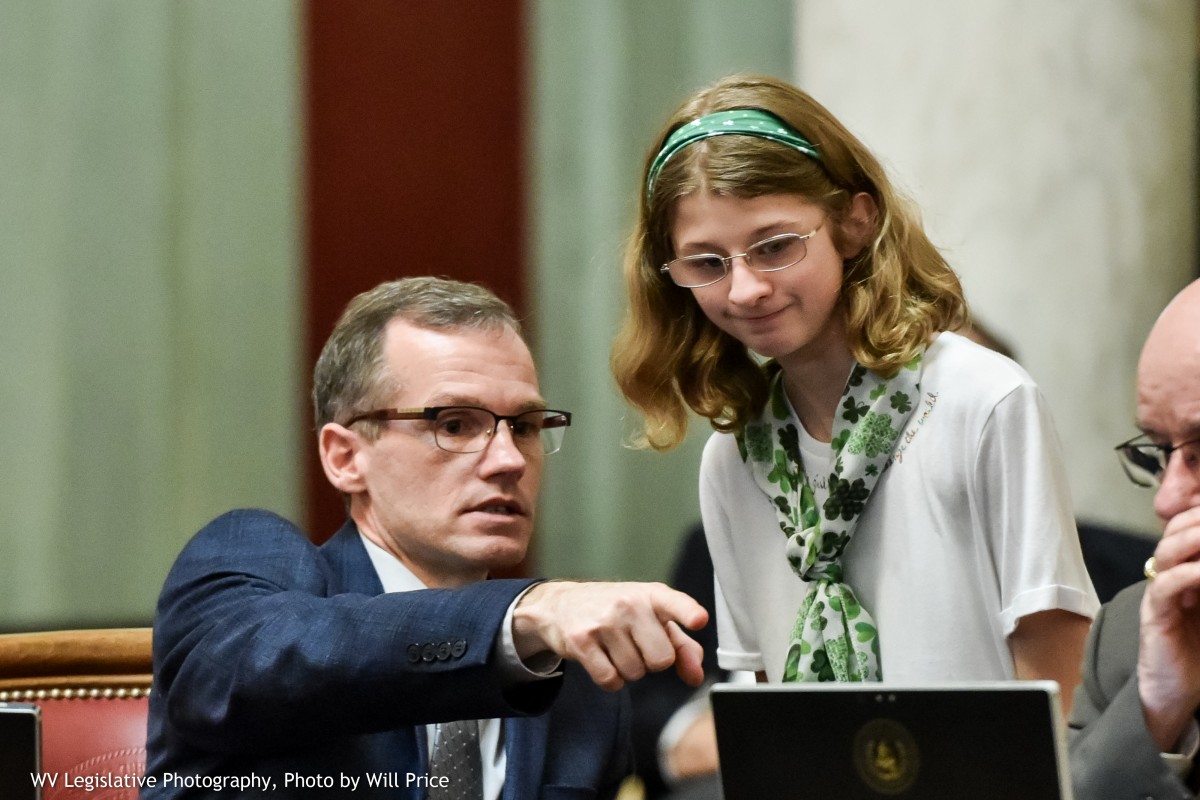CHARLESTON — While teachers chanted and delegates killed the education omnibus bill at the east end of the Capitol, the Senate breezed through a handful of hardly noticed bills. One to raise property taxes died in a tie.

— SB 29 is an economic development bill. It proposes to establish a tax credit for businesses locating on post-coal mine sites. It would allow a tax credit equal to 50 percent of the qualifying business’ capital expenditures for its first five years at the site. It passed 32-0 and goes to the House.
— SB 117 offers incentives for local governments to consolidate. Sen. Corey Palumbo, D-Kanawha and sole sponsor, told his colleagues that legislation passed about a decade ago allows county and municipal governments to consolidate to gain more efficiency, but none have done it.
Under the bill, municipalities that candidate would be entitled to an audit to recommend efficiencies, preference on planned Division of Highways road construction or repair projects and the right to impose a 1 percent sales tax.

Counties that consolidate would be entitled to a 10 percent discount on jail fees, road project preference and a 1 percent sales tax in areas without a city sales tax.
For cities and counties that consolidate together, all the benefits above would be available.
It also passed 32-0.
— One of the two most divisive bills of the day was SB 333, to exempt cars 25 years or older from county personal property tax.
Sens. Mark Maynard, R-Wayne, and Tom Takubo, R-Kanawha, both said the bill would benefit hobbyists, often older and on fixed incomes, who find the value of their antique cars escalating – from $2,000 to $100,000 in a few cases – and the cost of the tax pricing them out of ownership.
The projected statewide cost is $1.5 million.
A number of senators sought a Senate Rule 43 ruling on whether they should be permitted to vote because they own vehicles that would see the tax cut.
Senate President Mitch Carmichael said they all are part of a class of five or more members and directed them to vote.
But that prompted Sen. Mike Woelfel, D-Cabell, to comment that this appeared to be a bill to benefit senators at the expense of counties struggling to pay their jail fees.
The vote was 19-13, with members of both parties voting both ways. Locally, Democrat Bob Beach and Republicans Mike Maroney and Randy Smith voted yes; Democrat Roman Prezioso and Republicans Charles Clements and Dave Sypolt voted no.
— The other divisive bill was SB 618. Current levy rate law says that when a county property assessment would cause an increase of 1 percent or more in total value, county and city levy rates must be adjusted to produce no more than 101 percent of the previous tax year’s revenues.
SB 618 proposed to increase the threshold to 10 percent, so that the revenue would rise to no more than 110 percent over the previous year’s. This was intended to help counties face the growing costs of jail fees and infrastructure projects.
There was no debate. It went right to a vote and died 16-16. Two Republicans, Sypolt and Eric Tarr of Putnam, crossed the aisle to vote against it. Two other Republicans were absent.
Campus carry bill
Back at the east end, before the House gather to kill SB 451, House Judiciary barely passed the Campus Carry Bill.
Officially called the Campus Self Defense Act, HB 2519 would allow, with specified exceptions, people with concealed carry permits to carry weapons on college campuses.
WVU opposed it this year and last year. A Judiciary public hearing on the bill on Feb. 11 drew 30 opponents compared to 11 supporters.
Some Republican members were absent and observers said afterward it was thought the bill might die in committee, but it passed 12-11 and goes to the House floor.
TWITTER @dbeardtdp Email David Beard at dbeard@dominionpost.com




